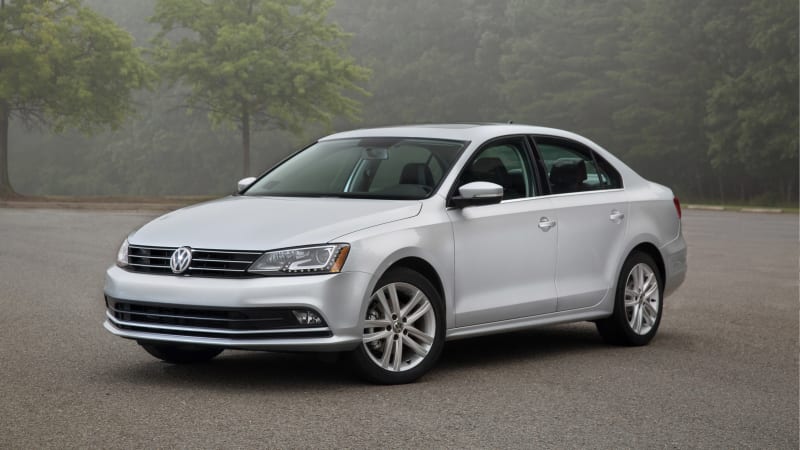Should you buy a post-scandal Volkswagen diesel?
https://ift.tt/36c3yq2

As outrage over the Volkswagen emissions-cheating scandal fades, the refurbished diesel vehicles are trickling back into the marketplace, and bargain hunters may want to snap them up.
In 2015, Volkswagen was forced to either buy back or fix some 590,000 diesels after it was discovered they had been rigged to pass emissions tests. The diesels, made by Volkswagen, Porsche and Audi between model years 2009 and 2016, have been repaired to truly meet emissions standards and are now being sold, mostly through Volkswagen dealers, with enhanced warranties.
‘TERRIFIC ALL-AROUND CARS’
“They’re terrific all-around cars,” says Mark Holthoff, editor at Klipnik.com, a community website for used car enthusiasts. Besides outstanding fuel economy and an extended range, he said, the VW diesels provide luxury touches found in more expensive cars. And despite their diminutive appearance, they have spacious interiors.
“It’s amazing how a good deal will change your mind” about the scandal, says Joe Wiesenfelder, executive editor at Cars.com. He said that editors on his staff liked VW diesels because they have great fuel economy and are fun to drive. They deliver pleasing off-the-line acceleration, due to a turbocharged engine, and can come with a manual transmission.
THE FIX IS IN
Cars.com tested one of VW’s diesels, a 2013 Jetta SportWagen TDI, both before and after the emissions repair. TDI is VW’s abbreviation for “Turbocharged Direct Injection,”where the fuel is delivered to the engine more efficiently.
Cars.com editors found that the fix for their vehicle — a software upgrade and an improved catalytic converter — actually improved acceleration and sacrificed just 1 mpg from the fuel economy, dropping it to 42.4 mpg on a test drive. “This meant the driving experience was almost unchanged,” Wiesenfelder says.
The popularity of the VW TDIs comes from the fact that there is no other car quite like them.
Chevrolet has offered a diesel engine in its now-discontinued Cruze, but Wiesenfelder found it sluggish compared with the TDIs. Both Honda and Mazda considered introducing diesels, but they never appeared in the U.S.
DIESEL PREMIUM IS ERASED
Prior to the scandal, new cars with diesel engines cost $4,000-$6,000 more than the same model with a gasoline engine, says Jeremy Acevedo, Edmunds‘ senior manager of insights. But now that premium has narrowed for the refurbished used diesels.
Comparing the VW diesels and their gasoline counterparts from the 2015 model year, the diesels have sold for only $1,286 more, on average, Acevedo says. Many diesels have low miles for their model year, providing even more value for the next owner.
BUT WHAT ABOUT RELIABILITY?
After VW’s extensive buyback program, photos circulated on the internet showing acres of parked diesels in giant lots across the country. While a VW statement said the cars were “routinely maintained,” having cars sit idle for so long might make some buyers nervous.
“Cars age better if they are driven regularly,” admits Wiesenfelder. But he said the fears of the effects of disuse can be offset by “a robust warranty.”
In fact, VW sells the affected diesel models with an extended warranty on all related fuel and emissions components of up to 10 years/120,000 miles from new or 4 years/48,000 miles from the emissions update, whichever is greater. Many are available as certified pre-owned vehicles, or CPOs, carrying an included two-year, bumper-to-bumper warranty.
ENVIRONMENTAL TRADE-OFFS
Before the scandal, VW’s TDIs were advertised as “clean diesels.” So when the cheating was revealed, many environmentally concerned owners felt betrayed. The U.S. Department of Energy’s FuelEconomy.gov site now lists the 2013 Jetta SportWagen TDI as a 7 on a scale of 10, for carbon emissions. The same car with a gas engine is also a 7.
Wiesenfelder points out that there is more than one type of auto emissions, and VW’s diesels probably release more “particulate matter.” Still, it’s a trade-off because “it isn’t a sound environment practice to junk an existing vehicle and (build) a new one.”
SHOULD YOU BUY ONE?
Although the post-scandal diesels might still be slightly more expensive than the same gas VW models, these are still great cars for buyers looking for benefits like these:
- Car owners will love driving as far as 500 miles between fill-ups.
- Diesels are workhorses with a reputation for lasting several hundred thousand miles.
- These VW diesels have a solid, premium feel at an affordable price.
- SportWagens and even the hatchback Golfs have surprisingly generous cargo space.
But there are a few downsides:
- Diesel often costs as much as 30 cents more per gallon than gasoline.
- Not all filling stations sell diesel fuel.
- While there is little odor to VW diesel exhaust, some people hate the smell of diesel fuel.
- Engine noise is a bit louder, particularly while accelerating.
Buyers interested in a refurbished diesel should carefully read the vehicle history report, which is usually included for free by a dealer. This will tell you how well the car was maintained and where it was serviced. And finally, always check pricing guides such as Edmunds and Kelley Blue Book, and compare pricing at competing dealerships.
_______________________________________________
This article was provided to The Associated Press by the personal finance website NerdWallet. Philip Reed is a writer at NerdWallet.
Related Video:
Auto Blog
via Autoblog https://ift.tt/1afPJWx
October 27, 2019 at 11:45AM